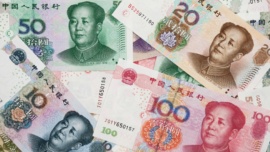The hotel industry has long been one of the most important economic sectors of the Macau Special Administrative Region. It has become even more significant in the wake of the arrival of several large-scale international resorts. But in recent years the MSAR Government sees the inclination to the gaming operators’ attached accommodations, and thus unveiled its attempt in 2016 to push budget hotels in the city for the coming year in order to diversify Macau’s economy. The industry, however, questions the government’s determination and makes suggestions to propel the sector.
Last year, Chief Executive (CE) Fernando Chui Sai On announced attempts to boost and promote the development of budget hotels in his 2017 Policy Address.
However, the hotel sector, in particular those establishments that are 2-star, is uncertain about the government’s plan to promote budget accommodation.
Tang Wai Hong, the General Manager of 5footway.inn Project Ponte 16 Macau remarked that the law for hotels is outdated, saying that the current law had not changed for years during the rule of the Portuguese Administration.
He notably stressed the inflexibility of the terms for rebuilding – the land premium payment.
“I know many old guesthouses chose not to reconstruct their building because the owners thought it was not worth it,” said Mr. Tang.
In Macau, the law requires hotel developers to make the land premium payment, with 2-star paying MOP4,500 (US$562) per square metre of construction area.
Mr. Tang said the land premium payment might exceed the re-construction fee.
Apart from the extra payment that developers must pay, fire regulations are another primary restriction in establishing budget hotels.
According to Mr. Tang, properties of over 130 square metres floor area are required to build at least two staircases for fire escape.
He remarked that the regulations restricted more rooms that can be built.
The owner of Asia Hotel Group, Cheong Chi Man, said the fire regulations were drafted decades ago, adding that the regulations should be loosened.
“Many old-style guesthouses [that do not meet the current regulations] can still operate in Macau, so why can’t the new ones?” asked Mr. Cheong.
After operating his establishment for several years, Mr. Cheong commented that the government is not as passionate as he had once thought when the intention to develop the budget hotel sector in the city was disclosed from 2012 to 2013.
“We thought there was potential in this segment given by the possible support of the government,” remarked Mr. Cheong. “But it turned out that the government is not as passionate as I thought and it hasn’t really given a lot of support to the industry.”
In fact, Mr. Cheong decided to invest in Asia Hotels Group because of the government’s intention to support the sector.
The marketing staff of Hou Kong Hotel, Kylie Chim. also revealed that it has not received significant help from the government or the Macao Government Tourism Office (MGTO).
Currently, MGTO is handling 11 applications to establish budget hotels.
According to MGTO, an internal task force for budget accommodation establishments had been set up.
The task force is to facilitate the licensing procedures and prioritise licence applications from budget hotels, and it will conduct meetings with applicants and assist them in identifying and solving problems for applicants during the licensing process.
Turning old to new
Developing budget hotels is related to the revitalisation of the city’s old neighbourhood, said Mr. Cheong.
“There are many old hotels in Macau – really old – but there hasn’t been any renovation so far,” according to Mr. Cheong. “To develop the sector, hotels need to provide a comfortable environment for our guests […] neatness and cleanliness are the two basic requirements.”
With several budget hotels already operating in Macau, Mr. Cheong disclosed that the company is interested in taking over old hotels whose owners want to cease operations.
“We’re preparing to publish advertisements in the local press in the near future [to inform interested parties],” said Mr. Cheong.
Ms. Chim also echoed that transforming old buildings into hotels would be a good thing if improvised well.
“As long as it is improvised well,” said Ms. Chim, adding that turning old buildings into new hotels is not easy because of the facilities or structure already in-built.
However, the receptionist of Hotel Holiday, Pun Hong Un, who has been working in the hotel industry for over a decade, holds a different view, opining that hotels should be built on a larger scale and should be more centralised in a particular area of the city.
He explained that with larger hotels and centralised location, facilities such as transportation can be more organised.
If hotels are located in the same zone, Mr. Pun said that the impact upon residents would be reduced to its lowest.
Fierce competition?
With the many establishments of different hotels and accommodations in the city, plus the unstable external factors, the average price for 2-star hotel rooms has dropped significantly in the past few years.
Mr. Pun revealed that the current price has decreased by more than MOP100 compared to three years ago.
“Macau has [provided] more [hotel] rooms in the past two years, like a few thousand rooms, but the number of visitors hasn’t grown,” Mr. Pun reflected.
Similarly, Ms. Chim said the supply of hotel rooms in the city has increased, while demand decreased.
“The policy [by the government of supporting the development of budget hotels] is not good because there will be more competition for us,” commented Ms. Chim. “[The policy is not helpful] even for the entire market because there are already a lot of hotels.”
However, Ms. Chim remarked that the industry would benefit if the government were also to promote the budget hotel segment.
She added that in previous years travel agencies would seek hotels to offer rooms but nowadays, with more hotels being launched, the bargaining power has switched to the travel agencies instead with hotels asking for customers from agencies.
According to official data gathered by the Statistics and Census Bureau (DSEC) the number of hotel rooms provided by 2-star or budget hotels has been fluctuating in recent years, from 812 rooms recorded in 2015 to 654 last year and grew back to around 700 in January this year.
Mr. Tang from 5footway.inn Project Ponte 16 Macau, however, opined that the growth in the number of hotels has had little impact on his property, saying that many family-managed hotels usually give rooms to travel agencies while his customers acknowledge 5footway inn via online booking platforms.
Overnight stay
Regarding how to improve the hotel industry in general, Mr. Pun pointed said attracting tourists to stay overnight is the main drive for a better hotel industry development.
“Macau is a really small place […] how are you going to attract tourists to stay overnight? Aside from casinos what else has Macau got?” asked the receptionist, adding that there is no place or spot for family-based tourists.
Meanwhile, the MSAR Government has pledged to create themed parks and integrated shopping malls to attract different tourist bases.
Mr. Pun noted that crossing the border for visitors is easier nowadays; and with 24/7 borders visitors are less willing to stay overnight in Macau, choosing to stay in cheaper hotels in Gongbei, Zhuhai.
“I know some people who frequently visit Macau, even rent a flat in Zhuhai since the rent for a month there is more or less the same for the amount of staying a night in a 5-star hotel,” indicated Mr. Pun.
DSEC data shows that the occupancy rate for 2-star hotels recorded in 2016 was 68.4 per cent, compared to 76.7 per cent in 2010.
Myth about budget hotels
Concerns that the development of budget hotels in Macau would sabotage the income of the city’s 5-star hotels is refuted by the owner of Asia Hotels Group, who said: “They [budget and 5-star hotels] are two totally different segments. [The annual] number of visitors to Macau amounts to over 30 million; suppose half of which are same-day visitors, we should [encourage] this half to stay in Macau as well.”
He analysed that half of Macau’s visitors who chose not to stay overnight are most likely unable to afford to stay in a 5-star hotel, urging that the city pay attention to creating a long-term strategy to encourage these visitors to stay.
With many complaining about the crowds of tourists in popular tourist spots, Mr. Cheong said that with more budget hotels launched in places such as near the Ruins of St Paul’s, tourists staying in these premises would be less likely to visit the same spot during peak hours.
On the other hand, the image of budget or boutique hotels is commonly and long acknowledged as inappropriate.
Mr. Cheong suggested the government strengthen its supervision of hotel guests, mandating all hotels register their guests’ identity.
“For example, all hotels in Mainland China require hotel guests to register with valid identity documents,” said Mr. Cheong, revealing that many hotels in Macau do not require identity documents.
Prospects
Given the soon to be launched Hong Kong-Zhuhai-Macau-Bridge, Mr. Cheong estimated some 50 million visitors will be attracted to visit Macau in five years’ time.
“Transportation in Macau is very convenient – China’s high-speed rail stops right at our door [Zhuhai], flight tickets are cheap, and we have ferries,” he said.
Ms. Chim, meanwhile, perceived that the market would not post significant growth in the near future, saying that she is content if the market remains the same as now.
On the other hand, Mr. Tang wants the government to update the current law – and communicate more with the industry.























